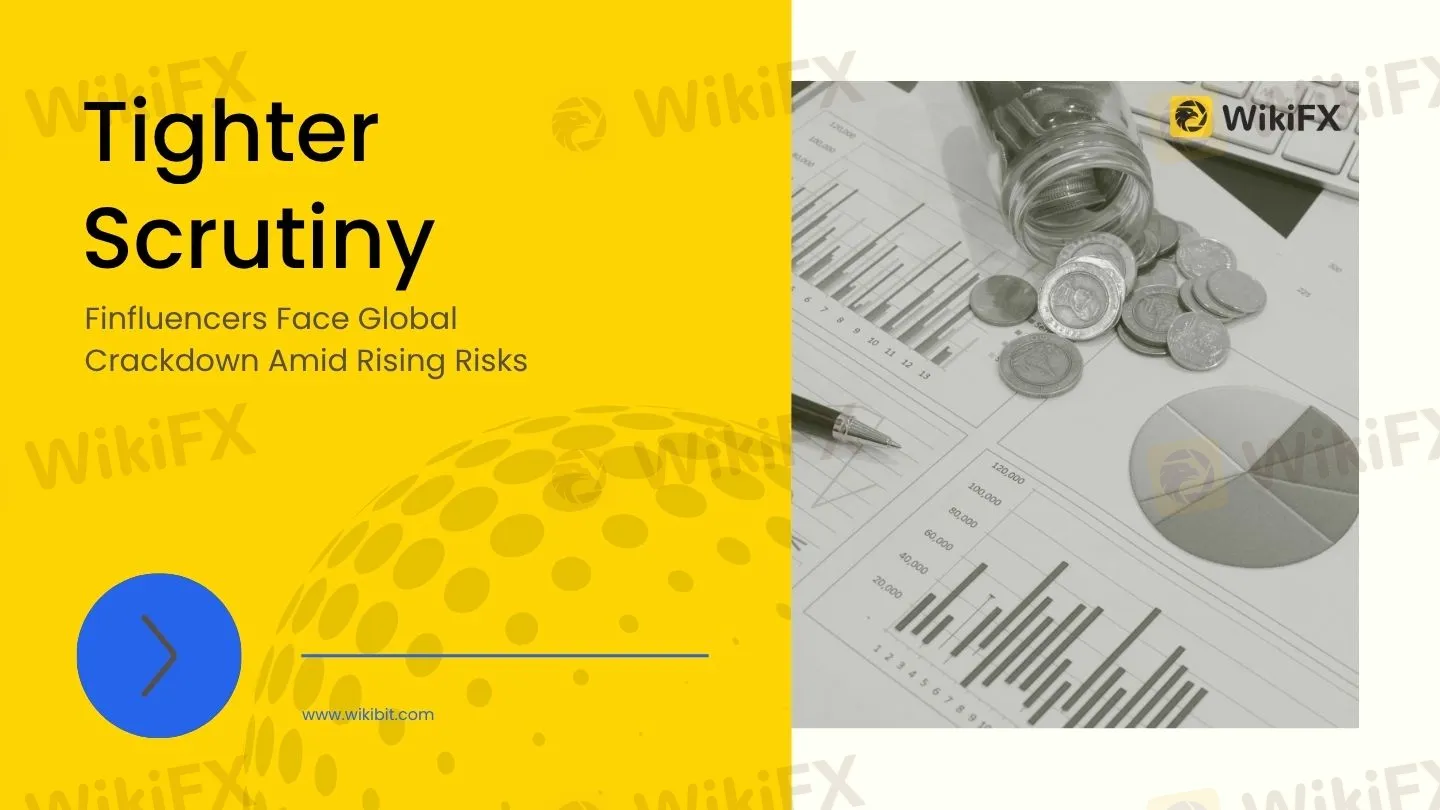简体中文
繁體中文
English
Pусский
日本語
ภาษาไทย
Tiếng Việt
Bahasa Indonesia
Español
हिन्दी
Filippiiniläinen
Français
Deutsch
Português
Türkçe
한국어
العربية
Tighter Scrutiny: Finfluencers Face Global Crackdown Amid Rising Risks
Abstract:The UK’s Financial Conduct Authority (FCA), in collaboration with eight global regulators, has taken strong enforcement actions against unauthorised finfluencers. The move signals a broader regulatory shift toward stricter oversight of financial promotions on social media.

Finfluencers Under the Regulatory Microscope
Finfluencers—social media personalities offering financial insights or promoting investment products—have become influential voices for retail traders. However, regulators are now stepping in to curb misleading content and unauthorised financial promotions that have proliferated on platforms like Instagram, YouTube, and TikTok.
In a recent coordinated enforcement campaign, the FCA launched criminal proceedings against three individuals, arrested three others, issued seven cease-and-desist letters, and published 50 warning alerts. These actions have resulted in over 650 takedown requests across various platforms and action against more than 50 websites.
A Global Effort to Protect Retail Investors
The UKs initiative is part of a wider “Global Week of Action” involving regulators from Australia, Canada, Hong Kong, Italy, and the UAE. Together, these authorities aim to protect retail investors from unauthorized financial advice and false advertising spread via social media.
“Finfluencers must act responsibly and only promote financial products where they are authorised to do so—or face the consequences,” said Steve Smart, Executive Director of Enforcement and Market Oversight at the FCA.
From Lavish Lifestyles to Legal Trouble
While many finfluencers operate within legal boundaries, some promote products by flaunting luxury lifestyles and promising unrealistic returns—often without the necessary financial licenses. These tactics mislead audiences into risky investments, blurring the line between marketing and financial advice.
A study by CMC Markets found that 33% of traders are more likely to follow a trade recommended by a social media influencer, making regulatory oversight more critical than ever.
Will Licensing Become the Norm?
While the UAE has already introduced mandatory licenses for financial content creators, the UK has not yet taken that step. However, the FCAs enforcement actions indicate that regulation-by-enforcement is intensifying, and a formal licensing framework could be on the horizon.
For now, finfluencers operating without proper authorization are on notice—and investors are reminded to verify the legitimacy of any financial guidance they consume online.
Disclaimer:
The views in this article only represent the author's personal views, and do not constitute investment advice on this platform. This platform does not guarantee the accuracy, completeness and timeliness of the information in the article, and will not be liable for any loss caused by the use of or reliance on the information in the article.
Read more

Never Heard of Dynasty Trade? Here's Why You Should Be Worried
Have you heard this name before? No , it’s time you do because staying unaware could cost you. This platform is currently active in the forex trading and has been linked to several suspicious activities. Even if you’ve never dealt with it directly, there’s a chance it could reach out to you through ads, calls, messages, or social media. That’s why it’s important to know the red flags in advance.

WEEKLY SCAM BROKERS LIST IS OUT! Check it now
If you missed this week's fraud brokers list and are finding it difficult to track them one by one — don’t worry! We’ve brought together all the scam brokers you need to avoid, all in one place. Check this list now to stay alert and protect yourself from fraudulent brokers.

Catch the Latest Update on BotBro & Lavish Chaudhary
BotBro, an AI-based trading platform, became popular in India in 2024—but for negative reasons. Its founder, Lavish Chaudhary, who gained a huge following by promoting it heavily on social media. Since then, he has become well-known, but for many controversies. Let’s know the latest update about Botbro & Lavish Chaudhary.

Trading Other People’s Money | What Prop Firms Don’t Tell You
Proprietary (prop) trading firms have become increasingly popular. They give traders the chance to trade with larger amounts of money without risking their own savings. For many, this sounds like the perfect opportunity to grow faster and earn more. But while the benefits are appealing, there are also risks and hidden rules that traders must understand before joining a prop firm.
WikiFX Broker
Latest News
Is Your Forex Strategy Failing? Here’s When to Change
FSMA Warns That Some Firms Operate as Pyramid Schemes
Apex Trader Funding is an Unregulated Firm | You Must Know the Risks
Sigma-One Capital Scam? Investors Say They Can’t Withdraw Funds
Federal Reserve likely to hold interest rates steady despite pressure from Trump. Here's what that means for your money
WEEKLY SCAM BROKERS LIST IS OUT! Check it now
Intel drops 9% as chipmaker's foundry business axes projects, struggles to find customers
Palantir joins list of 20 most valuable U.S. companies, with stock more than doubling in 2025
Textiles to whisky: U.K.–India 'historic' deal is set to boost bilateral trade by over $34 billion a year
Thailand-Cambodia border clashes: Cambodia's economy has more to lose, analysts say
Currency Calculator


